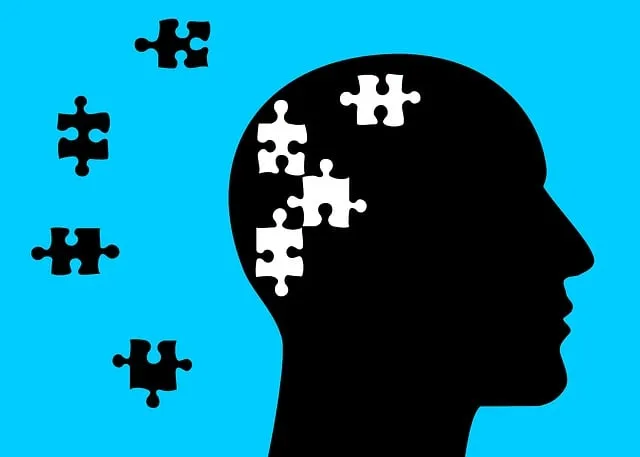Cultural sensitivity is crucial for effective mental healthcare at Kaiser's Englewood facility, addressing diverse patient needs beyond language barriers. It fosters trust, reduces stigma, and improves outcomes by tailoring treatments to individual cultural backgrounds, beliefs, and communication styles. The program emphasizes empathy, self-awareness, and evidence-based practices, training staff in cultural competency to prevent burnout and promote positive patient experiences, especially for marginalized communities facing systemic health disparities.
Cultural sensitivity is an essential aspect of modern mental healthcare, crucial for delivering effective treatment and fostering diverse patient care. This article explores the concept of cultural sensitivity within the context of inpatient mental health services, using Kaiser Inpatient Mental Health Englewood as a case study. We’ll delve into the challenges faced in providing culturally sensitive care and uncover strategies to enhance cultural competence. Understanding these factors is vital for improving patient outcomes and ensuring inclusive healthcare practices.
- Understanding Cultural Sensitivity in Mental Healthcare
- The Kaiser Inpatient Mental Health Englewood: An Overview
- Challenges in Providing Culturally Sensitive Care
- Strategies to Enhance Cultural Competence
- Benefits of Cultural Sensitivity for Effective Treatment
Understanding Cultural Sensitivity in Mental Healthcare

Understanding Cultural Sensitivity in Mental Healthcare involves recognizing and appreciating the diverse cultural backgrounds of patients, especially in areas like the inpatient mental health services provided by facilities such as Kaiser’s Englewood location. This sensitivity is crucial for addressing the unique needs and challenges faced by individuals from different ethnic, racial, and social groups. For instance, what may be considered normal behavior or communication styles in one culture could be interpreted differently in another.
Cultural sensitivity promotes a more inclusive environment, reducing the Mental Illness Stigma Reduction Efforts often experienced by minorities. By understanding cultural nuances, healthcare providers can foster better patient-provider relationships, which can lead to improved self-esteem and trust. This is particularly important given the disparities that exist in mental health treatment access and outcomes across different communities. Kaiser’s Englewood inpatient mental health program, for example, must be attentive to these issues to ensure its services are effective and welcoming for all.
The Kaiser Inpatient Mental Health Englewood: An Overview

The Kaiser Inpatient Mental Health Englewood is a specialized facility within the renowned Kaiser healthcare system, offering comprehensive care for individuals dealing with severe mental health challenges. This facility is designed to provide an intimate and nurturing environment, recognizing the unique cultural backgrounds and needs of its diverse patient population. Located in a vibrant urban setting, it offers a blend of modern medical expertise and compassionate support.
Here, patients engage in various Empathy Building Strategies and Self-Awareness Exercises tailored to foster understanding and connection. Through Compassion Cultivation Practices, staff and patients alike cultivate a sense of belonging and mutual respect. The Englewood program focuses on evidence-based treatments while incorporating cultural considerations, ensuring that every patient receives personalized care that respects their heritage and traditions.
Challenges in Providing Culturally Sensitive Care

Providing culturally sensitive care in mental healthcare is a complex task, especially in diverse communities like Englewood, where individuals from various ethnic and cultural backgrounds seek treatment. The challenges stem from misunderstandings and barriers that can exist between patients and healthcare providers, often leading to mistrust and inconsistent care. For instance, differences in language, values, beliefs, and communication styles may hinder the effective delivery of services, particularly for Kaiser’s inpatient mental health program in Englewood.
When cultural sensitivity is lacking, patients might feel misunderstood or stigmatized, impacting their willingness to disclose personal experiences and seek support. This is especially critical in communities where access to quality healthcare is limited, and inner-city residents, such as those in Englewood, may face additional challenges related to systemic barriers and socioeconomic factors. Therefore, healthcare provider training in cultural competency becomes essential to foster empathy, promote understanding, and facilitate the development of effective treatment plans that respect individual differences and build on their inner strength, potentially improving outcomes and reducing stress through tailored Stress Reduction Methods.
Strategies to Enhance Cultural Competence

Cultural sensitivity is paramount in mental healthcare to ensure effective treatment for patients from diverse backgrounds. At Kaiser, particularly in its inpatient facilities like Englewood, professionals can enhance cultural competence through continuous education and training. This includes learning about various cultural beliefs, practices, and communication styles that may differ from their own.
Integrating these insights into practice allows providers to create a safe, inclusive environment for all patients. Strategies such as active listening, asking culturally sensitive questions, and tailoring treatment plans to align with individual values and traditions can significantly impact positive outcomes. Moreover, addressing burnout prevention and stress management techniques tailored to diverse populations is crucial, fostering emotional regulation both within the healthcare team and their clients.
Benefits of Cultural Sensitivity for Effective Treatment

Cultural sensitivity is a cornerstone for effective mental healthcare, especially when considering institutions like Kaiser’s inpatient facilities in Englewood. It ensures that treatments are tailored to meet the unique needs and beliefs of diverse patient populations, fostering better engagement and outcomes. Patients from various cultural backgrounds often have distinct understandings of health, illness, and healing, influenced by their traditions, values, and experiences. A culturally sensitive approach recognizes these differences and incorporates them into care plans.
This sensitivity does not just enhance treatment; it also contributes to improved patient satisfaction and trust in healthcare providers. When mental health professionals demonstrate an understanding and respect for a patient’s cultural context, it can lead to more open communication and a willingness to participate actively in their healing journey. This is particularly crucial in inpatient settings, where patients are navigating both their mental health challenges and unfamiliar environments. Moreover, fostering cultural sensitivity can be a preventive measure against burnout among healthcare providers, as it reduces misunderstandings and promotes a more holistic approach to mental wellness, which can be further explored through resources like the Mental Wellness Podcast Series Production or Mental Wellness Journaling Exercise Guidance.
Cultural sensitivity is a cornerstone of effective mental healthcare, and as evidenced by the case of Kaiser’s Inpatient Mental Health Englewood facility, it can significantly enhance patient outcomes. By understanding diverse cultural contexts, mental health professionals can overcome challenges and provide tailored care. Strategies to enhance cultural competence include comprehensive training, promoting diversity within teams, and adopting flexible, evidence-based practices. The benefits are clear: culturally sensitive care improves patient satisfaction, increases access to services, and ultimately fosters better mental health outcomes for all individuals, regardless of their background. Therefore, prioritizing cultural sensitivity is not just desirable but essential for modern mental healthcare practices, including Kaiser’s Englewood facility.






